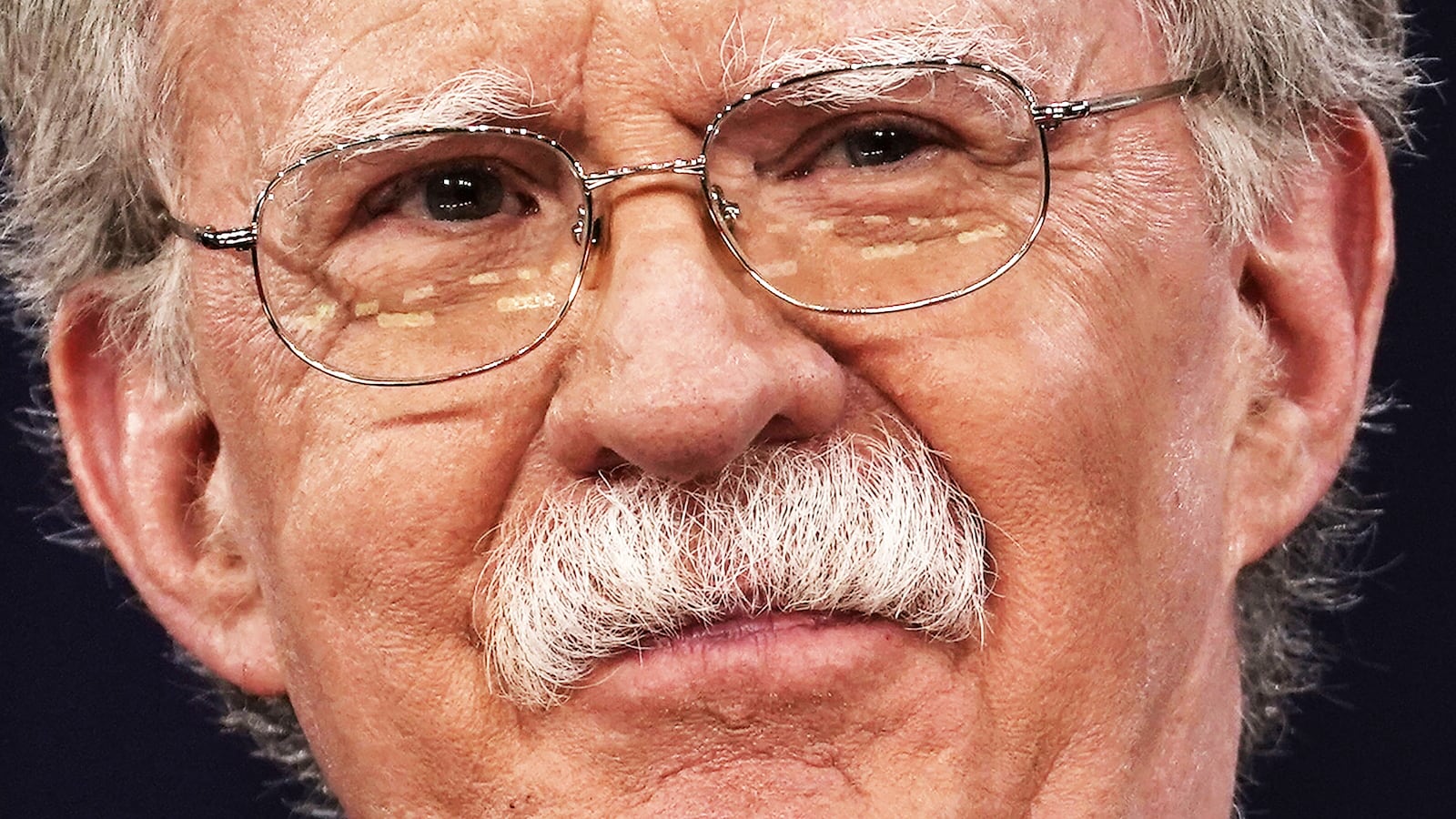I first started covering John Bolton in 2005. At the time, the United Nations was gearing up for its largest-ever meeting of heads of state to mark the organization’s 60th anniversary. The fete was to take place at the annual United Nations General Assembly that September, the focal point of which was a major package of reforms that had been painstakingly negotiated by countries prior to the summit.
But weeks before presidents and prime ministers were to arrive to celebrate the successful signing of these reforms, John Bolton entered the picture. Bolton was granted a recess appointment by George W. Bush on Aug. 5, just as negotiations entered their final stages.
The talks were immediately thrown into disarray.
Bolton inserted hundreds of objections to a late draft of the agreement, creating new “red lines” for the United States where none had previously existed. His objections covered issues big and small—even on semantics. For example, he rejected the mere mention of a poverty-alleviation program called the Millennium Development Goals. He refused to budge from his maximalist position on this and every other edit he made to the document.
At the time, he seemed to relish in the chaos that he had sown. During late-night press encounters, he would quip “All night, all right!” as if his goal was less to negotiate in good faith and more to just drag out the negotiations as a deadline loomed.
Eventually, as I reported at the time, then-Secretary General Kofi Annan got so fed up with Bolton’s antics that he called then-Secretary of State Condoleezza Rice and asked her to rein him in. She did. The reform packages passed at the eleventh hour.
That incident presaged Bolton’s entire tenure at the U.N. The memoir he wrote of his experience at the U.N. was titled Surrender Is Not an Option. But Bolton’s time at the U.N. suggests that, to him, the natural give and take of diplomacy is akin to “surrender” and must be avoided at all costs. Understanding how he performed his job at the U.N. gives us big clues as to how he might approach the job as national security adviser, to which he has just been named.
At the United Nations, Bolton demonstrated a profoundly zero-sum view of international relations. Other countries’ gains—no matter how insignificant—were ipso-facto America’s losses. This upended traditional alliances at the U.N. Typically, the United States and its European allies would band together in negotiations that reflected common interests. But Bolton was never willing to give an inch and accept the kinds of tradeoffs proposed by American allies. In his memoir, he reserves his harshest criticism and deepest vitriol not for the representatives from Iran or Venezuela, but for his British counterpart, U.K. Ambassador Emyr Jones Parry, whom he mercilessly pillories as an “EU Roid.”
The same dynamic also existed in his interagency battles. He steadfastly opposed a joint European-American initiative to negotiate with Iran, only to be overruled, again, by Condi Rice. Bolton also pushed back against efforts by the Bureau of East Asia and Pacific Affairs at State Department (known as the “EAP” bureau) to re-open negotiations with North Korea through a format called the Six Party Talks. In his memoir, Bolton derides American diplomats at the bureau as “EAPeasers.”
Even before he became ambassador to the U.N., Bolton demonstrated a propensity to fixate on relatively minor foreign-policy issues and elevate them to major crisis points. In 2003, Bolton served as the undersecretary of State for arms control and international security. As he recounts in his memoir, he relished the opportunity to knee-cap the nascent International Criminal Court, which was set up to prosecute individuals for genocide and mass atrocities.
President Bill Clinton, in his final days in office, signed the treaty that created this court. In Bolton’s early days as undersecretary of State, he declared that the United States had “unsigned” the treaty. He remarked that this was his happiest moment of his life as a public servant.
But that was not enough. Bolton then embarked on an international campaign to secure bilateral agreements with as many countries as possible to theoretically grant Americans immunity from prosecution by the ICC. He would threaten these countries with a cut-off of military assistance should they not sign on to the agreement.
One can argue about the propriety of the International Criminal Court. But his fixation on these immunity agreements created awkward and unnecessary friction with American allies. In 2003, for example, Latvia saw its military aid cut even as it was one of the very few countries in Europe to contribute its troops to George W. Bush’s war in Iraq. Latvia was a member of the coalition of the willing, but it was not willing to sign one of these agreements with the United States and so saw some military aid suspended, even as its troops were in Iraq.
What does Bolton’s past suggest about how he will approach the job of national security adviser?
Generally speaking, there are two kinds of national security advisers. There are those who emphasize their role as an honest broker between competing viewpoints and bureaucracies to judiciously oversee what is known as the “interagency process.” And there are those who are infighters themselves, who advocate for specific viewpoints and policies.
I think we can safely guess what role John Bolton will fill. And that is the real danger. Bolton has famously called for pre-emptive war with both North Korea and Iran. He’s demonstrated a callous propensity to alienate allies. He enters into negotiations unwilling to give an inch.
So this is the man who, as of April 9, will be whispering in Donald Trump’s ear and running National Security Council meetings. You’ve read about his extreme positions vis-à-vis North Korea and Iran. And now you’ve read that he enjoys alienating allies and thinks diplomacy is appeasement. So yep—as bad as you think.






